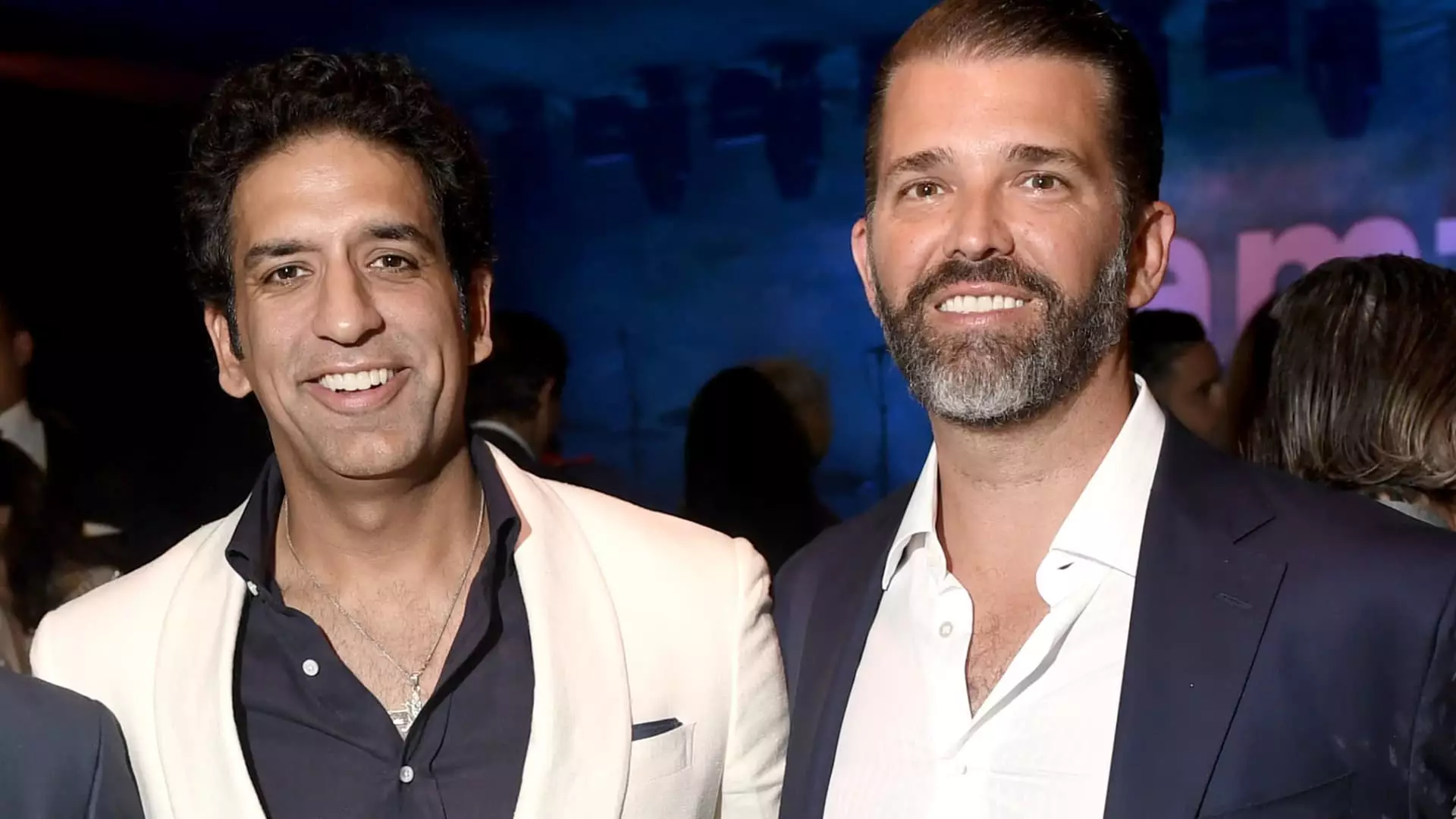The launch of the Executive Branch in Washington, D.C., co-founded by Donald Trump Jr. and a cadre of affluent players, is more than a lavish private membership club; it’s a blaring signal of the deepening socio-political divide that characterizes the American landscape today. With a staggering initiation fee of $500,000, it begs the question: who exactly benefits from such an exclusive gathering, and what does it signify for the rest of us? The glitzy launch party attracted an impressive roster of current and former government officials, wealthy tech entrepreneurs, and policy elites, all of whom gathered under the extravagant banner of this new club—with no intention of letting the average American in on the action.
A Dangerous Precedent
At a time when trust in institutions is disintegrating and economic inequalities continue to widen, a club charging a half-a-million-dollar membership fee strikes me as tone-deaf and dystopian. It’s a clear reflection of an elite class that feels entitled to insulate itself from the very reality that most American families endure daily. The founders and early members—entrenched in political ties and fueled by capital—are setting dangerous precedents for governance. They stand as a closed circle where policies are likely shaped in private dining rooms rather than public forums. Therein lies the concern: when the bastions of power become too exclusive, democracy itself suffers.
A Glimpse Behind the Velvet Rope
What does it mean for a club like Executive Branch to intentionally exclude media members and “just a lot of lobbyists”? The implication is that only certain voices can sway the decision-making process. The narrative is curated, the membership vetted—an elite selectivity that not only diminishes public discourse but also potentially stifles innovation by excluding diverse perspectives. One could argue that an environment fostering such exclusivity leads directly to political polarization, where the voices that truly need to be heard are selectively ignored.
The founding members’ insistence on maintaining a compact and select club presents a stark contrast to the collective ethos that is—ideally—meant to underpin democratic governance. The members of the Executive Branch will inevitably wield an inordinate amount of influence in how policies are shaped, edging out alternative viewpoints that could spark constructive debate. In the course of gathering such individuals under this high-priced umbrella, we risk creating an echo chamber that reverberates with only the richest sensibilities.
Reinterpreting Social Clubs in the New Era
What’s more disturbing is that Executive Branch is not alone. A trend has emerged where affluent individuals are retreating behind the walls of exclusivity, creating a society where leisure and influence intertwine in a multi-million dollar game. While the pandemic ratified some of this trend, private membership clubs began sprouting up like weeds, from New York to Miami to Los Angeles, featuring amenities that cater to the whims of the wealthy.
Even clubs that once seemed on the edge of extravagant, like the Aman Club in New York with a $200,000 fee, seem relatively tucked away compared to the brazen pricing of Executive Branch. Our society is giving way to a patchwork of exclusive enclaves, driven by wealth and insularity. This phenomenon sends a clear message: access to political and economic power no longer equates to merit or public service but rather a powerful financial portfolio.
The Duplicate Discourse Dilemma
To the average American grappling with rising costs, stagnant wages, and dwindling opportunities, the emergence of such enclaves feels like adding insult to injury. The idea that one can pay half a million dollars for access to influential peers while working families are scrambling to pay rent reflects an unsettling ascendency of America’s class divisions. Expecting to lead a nation while setting an example of gated elitism turns the very foundations of democracy on their heads.
As the Executive Branch finds its footing within the Georgetown neighborhood, it undoubtedly aims to replicate the social-political significance of the Trump International Hotel from the previous administration. However, if history is any teacher, we can expect that this club will attract not just business leaders but also their own set of ethical concerns. The murky waters of conflict of interest and corporate influence threaten to further erode public trust.
The legitimacy of political discourse is being undermined with every new tier of exclusivity. What we must acknowledge is that while wealth can facilitate access to power, it doesn’t inherently cultivate responsibility or accountability. As such, the birth of Executive Branch is not merely a new chapter in elite living; it is a clarion call for a reevaluation of who we, as a collective, allow to shape our society.

